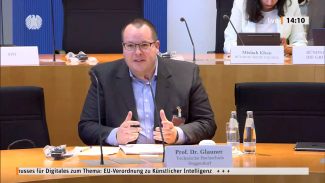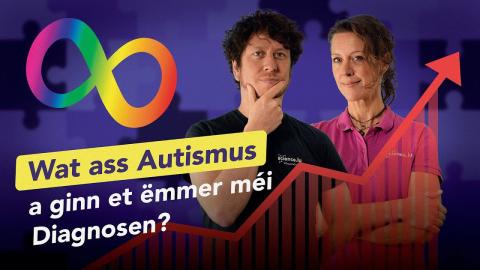
University of Luxembourg, Deutscher Bundestag, LIST
Die Experten (v.l.n.r.): Tomer Libal, Patrick Glauner, Francesco Ferrero
Anm. der Red.: Der Artikel wurde am 14.3.2024 aktualisiert, mit der Meldung dass das Gesetz am 13.3. vom EU Parlament gestimmt wurde.
Gestern hat die Mehrheit des EU Parlaments für den EU AI Act gestimmt, der die künftigen Regeln für den Umgang mit Künstlicher Intelligenz (KI) in der EU definiert. Jetzt kann das Gesetz in Kraft treten. Im April 2021 hatte die EU-Kommission erstmals einen Entwurf veröffentlicht. Seitdem wurde über die künftigen Regeln verhandelt.
Was denken Forscher über den Gesetzestext? Und was ist ihrer Meinung nach am wichtigsten, um die Entwicklung der KI zum Nutzen der Allgemeinheit voranzutreiben? Hier die Aussagen von drei Wissenschaftlern mit Bezug zu Luxemburg:
Prof. Patrick Glauner, Deggendorf Institute of Technology

Patrick Glauner promovierte in KI am SnT - Interdisciplinary Centre for Security, Reliability and Trust der Universität Luxemburg. Zuvor studierte er am Imperial College London. Er ist seit seinem 30. Lebensjahr Professor für Künstliche Intelligenz an der TH Deggendorf. Zudem ist er der Ramon O'Callaghan Professor of Technology Management and Innovation an der Woxsen University in Indien. Zuvor war er u.a. an der Europäischen Organisation für Kernforschung (CERN) tätig. Als Sachverständiger hat er u.a. den Deutschen Bundestag und die französische Nationalversammlung beraten. Er wird vom CDO Magazine in der Liste der weltweit führenden Professoren im Datenbereich geführt.
Foto © Deutscher Bundestag
Tomer Libal, University of Luxembourg

Tomer Libal ist Forscher im Department für Informatik an der American University of Paris und leitender Forscher mehrerer Projekte an der Universität Luxemburg. Er konzentriert sich hauptsächlich auf symbolische und hybride Ansätze zu KI und Recht.
Foto © Universität Luxemburg
Francesco Ferrero, Luxembourg Institute of Science and Technology

Francesco FERRERO (male) has been Director of the IT for Innovative Services (ITIS) department at the Luxembourg Institute of Science and Technology (LIST) since 2021. ITIS is home to more than 100 IT scientists and engineers who carry out research, development and innovation activities in the field of AI, data and software, with the aim of supporting the digital transformation of private and public organisations. Francesco started his R&D career in 2005 as part of the eSecurity Lab of Istituto Superiore Mario Boella, an Italian RTO, and has been active in the creation and execution of applied research, development and technology projects in the ICT field, particularly in the transport, logistics and smart cities sectors.
Before joining LIST in 2016 as Lead Partnership Officer for the Mobility, Logistics and Smart Cities markets, he held several positions in research and development, management and partnership development. He has been recognised as an international expert in R&D and smart cities and smart mobility for many years, and is co-editor of a major research handbook in the field. He has also been a highly successful Horizon 2020 project coordinator, a keynote speaker at major international events and a member of high-level working groups in Luxembourg and abroad. He sits on the boards of ICT Luxembourg and the Luxembourg Media & Digital Design Centre.
Foto © LIST
Fragen: Britta Schlüter
Redaktion: Jean-Paul Bertemes (FNR)



